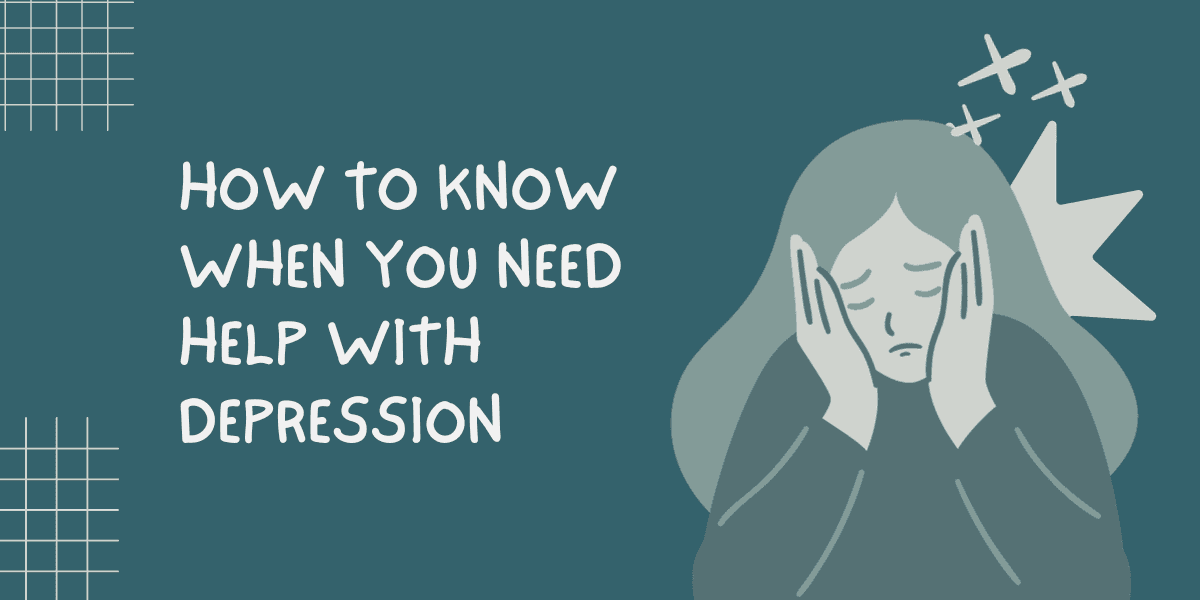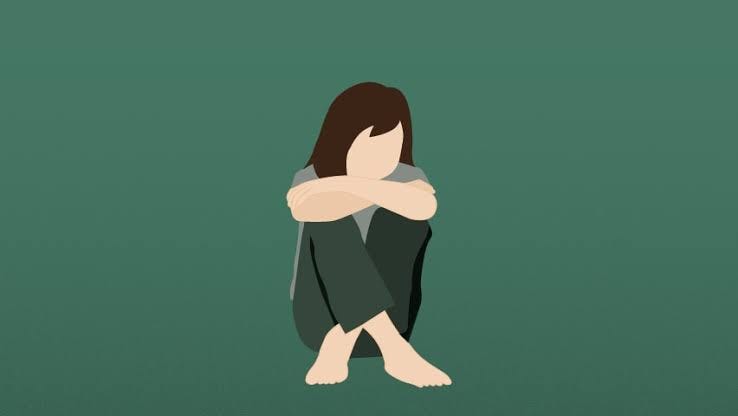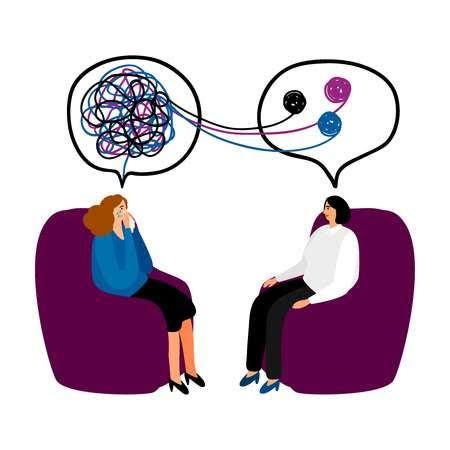How To Know When You Need Help With Depression

Life is of ups and lows. Even the mighty mountains have high peaks and low steeps, so it is only normal for us to feel low from time to time.It is common to feel blue occasionally, but if you end up feeling low all the time, then it is something to be considered. While depression is an overused term on a day to day basis, if there is adequate and authenticated knowledge on the same is a matter of question. Especially the passing away of a well known Indian celebrity and all the buzz over mental health has caused half-baked information on mental health to take a stroll. It does create a responsibility among mental health professionals to educate and advocate people with actual mental health facts and information. So, let’s get a little perspective on depression through this article!

Sad Or Depressed?
First things first, let’s break down something. There’s a vast difference between feeling sad or low and having depression. Feeling low or sad is a response to some happenings or situations in our life which didn’t go the way we want. While feeling sad will pass away eventually, depression is something that is not trivial. Depression is a mood disorder that causes lowered moods for a large amount of time. More often the source of depression is not known or visible upfront. Most of the time, depression is an accumulated response to many strenuous factors. Depression is not caused by one exact thing but by a combination of many events and circumstances. There are different types of depression that are caused due to various factors like lifestyle habits, genetics, life events, and much more
5 Signs Of Depression:
Let’s look at a few obvious signs which can indicate that you could have depression or be on the path to depression. By knowing which, you can be alerted to seek help.
- 1. Lowered and unstable moods
- 2. Erratic sleep pattern
- 3. Disrupted appetite
- 4. Hopelessness
- 5. Excessive lack of energy
1. Lowered And Unstable Moods
A person suffering from depression can experience extremely lowered moods. Does that mean that a person with depression is always sad with lowered moods? No. A person with depression might not have lowered moods all the time, but definitely, experiences lowered moods for substantially large periods.
In psychiatric research on clinical depression, it was found that people with depression often experience unstable highs and lows in moods compared to those who do not have depression. Depression being a mood disorder, affects your moods first. Although it is normal to feel lowered moods when a person witnesses a major loss or devastating situation in their life, not being able to move on from it and being stuck in an endless loop of lowered moods for a long time can indicate depression.
2. Erratic Sleep Pattern
Sleep is very much associated with how a person feels. An average person needs to sleep for around a decent hour of 7–8 hours per day. A person with depression is found to have an erratic sleep pattern and vice versa. A person with depression may either oversleep or sleep very less. It’s different for each person. According to research, it is stated that sleep disorders are the core symptoms of depression. It is unknown whether an irregular sleep pattern is a contributory factor or a result of depression, but they both co-exist. An imbalance in the sleep pattern is something that needs to be fixed and is a sign of depression in most cases.
3. Disrupted Appetite
There is a quote which says ‘one can not think well, love well, sleep well if one has not dined well.’ True to the quote, is the fact that people with depression experience a disrupted appetite. While few people eat little to nothing, many others with depression tend to overeat. Research shows that a high intake of processed fast food causes depression. Also, people with depression generally tend to eat unhealthy food than those who don’t. Many people with depression have no cravings and can go for long periods without eating anything. Disruption in food intake takes a toll on mental and physical health.
4. Hopelessness
All of us have a liking towards certain things or have mastered a specific niche of talent that we can exhibit. A person with depression feels hopeless for a major amount of time and finds it hard to do things that he/she used to enjoy in normal circumstances. A writer who normally enjoys writing might find it hard to write, a person who generally enjoys eating a favourite food may no longer have the craving for it, and someone who loves to dress up can find it hard to do the same. In research, it is found that hopelessness and depression can hit people from all cultures and socioeconomic statuses irrespectively. Hopelessness along with a great aversion to coping with life can turn into self-hatred and low self-esteem issues for a person struggling with depression.
5. Excessive Lack Of Energy
Depression sucks out the energy in you. A person with depression feels an excessive lack of energy and extreme fatigue. Most people with depression find it hard to get out of their beds every morning. Even day-to-day activities seem like a big task for a person with depression. According to research, it is found that fatigue is a residual symptom of depression. Lack of self-care is majorly seen in a person with depression, which might be due to little willingness and hope toward life and a lack of energy in the body.
OK, I’m Feeling Depressed… So Now What?
Getting Help :
The above are a few obvious symptoms that a person suffering from depression would experience. So, the obvious next question in mind would be how to overcome depression. Below are a few tips.
- Enriched nutrition
- Good sleep
- Medications
- Getting adequate sunlight exposure
- And most importantly — Behavioural therapy
Yes, therapy is a great help for a person with depression. A therapist will assess your problems and assist you on the path of coping with and overcoming depression, using scientifically proven methods.

Although it is good to believe in the phrase ‘This too shall pass’ and be optimistic, you need to be aware that neglecting what your body and mind indicate to you can lead to something severe. The above-indicated factors are just a pretext to indicate depression and are not a professional diagnosis in itself. If you relate with some of the above signs and want to do some good to your mind and body, get in touch with us, to connect with the best therapists who will help you heal.
Related Articles

Letting Go With Grace: Emotional Tools for Closure
Letting go is never easy. Whether we are parting ways with a loved one, ending a relationship, leaving a job, or saying goodbye to a cherished chapter of life, the emotional weight can feel overwhelming. Yet, closure is essential for our emotional well-being. Without it, we carry unresolved grief, anger, regret, or longing that can seep into new relationships and experiences, holding us back from healing and growth.

Breakup Blues: How to Cope and Rebuild Your Self-Worth
A breakup often feels like a silent earthquake—unseen by others but devastating within. The pain doesn’t just come from the loss of a relationship, but from the crumbling of the life, identity, and future you built with another person. You may find yourself questioning your worth, doubting your value, and feeling isolated even when surrounded by people. In Indian society, where emotional expression is often discouraged and breakups can be stigmatized, this pain may feel even more overwhelming. But the truth is—while breakups may shake you, they do not define you. You are not broken; you are in a process of emotional reformation. And with the right tools, guidance, and support system, you can rebuild not just your self-worth but also your entire life narrative.

Healing After Heartbreak: A Mental Health Perspective
Heartbreak doesn't just break your heart—it can shatter your sense of identity, peace, and purpose. Whether the end was expected or abrupt, mutual or one-sided, short-lived or long-term, the aftermath often leaves people emotionally disoriented. In Indian culture, where societal expectations and family involvement in romantic relationships are prevalent, the pain is not just personal—it is public. Yet, very few are taught how to heal from emotional loss in a healthy, sustainable way.

Boundaries in Love: Saying ‘No’ Without Guilt
Love, in its truest form, should be a safe space—a space where individuality is not only respected but celebrated. Yet, in many relationships, especially in the Indian cultural context, love is often misunderstood as constant availability, complete sacrifice, and putting the other person first, always. As noble as this may sound, this version of love often leads to emotional exhaustion, suppressed resentment, and the erosion of one’s identity.

Gaslighting in Relationships: What It Is and How to Heal
Gaslighting is a form of emotional abuse that erodes your ability to trust your own perception. It’s a slow, insidious process that often begins with subtle doubts and ends with complete self-questioning. In romantic relationships—especially in the Indian context where silence, compromise, and duty are often mistaken for love—gaslighting can be even harder to recognize.

How Depression Can Affect Your Relationship—And What You Can Do
Depression is not just an internal struggle—it ripples outward, affecting relationships, routines, and the emotional fabric that holds people together. When someone is dealing with depression, it's not only their world that becomes dim—it can cast a shadow over their most intimate connections too. In a country like India, where open conversations about mental health are still rare and love is often equated with endurance, depression within a relationship can become invisible, misunderstood, or misjudged.
